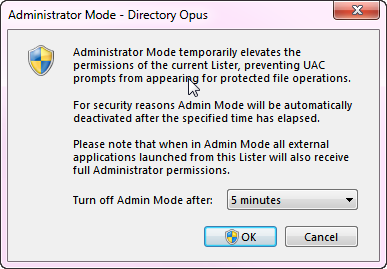
UAC (User Account Control) is a security feature in Vista and
above. It aims to make it much more practical to run as a standard user than in
Windows XP. When UAC is enabled (which it is, by default), users and the
programs they launch will have standard user privileges by default. This means
that important operating system locations (like the Windows folder) and
registry keys are protected against accidental or malicious modification - in
order to make changes to these locations, you need to elevate the task
by means of a UAC prompt.

Unfortunately Microsoft somewhat botched the implementation of UAC in Explorer. Vista was widely derided for the sheer number of UAC prompts you needed to click through to perform routine or mundane tasks. Simply creating a folder could result in four individual prompts, leading many people to simply turn UAC off altogether.
In Windows 7, Microsoft over-reacted to the criticism and have dramatically toned down UAC - unfortunately to the detriment of your system security. The default UAC settings (which use a white-list to prevent any UAC prompts at all for Explorer and other Windows components) reduce it to the mere appearance of a security system - and at the same time, disadvantaging other third-party tools that don't have the ability to be white-listed.
We have always viewed UAC as a commendable (if poorly-executed) attempt to improve the security of Windows, and we recommend both a) leaving it turned on, and (in Windows 7 or above) b) changing the level in User Account Control Settings to Always notify. Opus natively supports UAC, in a much more sensible way than Explorer, and you won't find performing administrative tasks in Opus difficult or irritating at all.
 Admin button on
the default toolbar. Opus will display a dialog that lets you specify a
timeout after which Administrator mode is automatically deactivated. This is
for security reasons, as it avoids the risk of accidentally leaving a Lister
elevated longer than necessary.
Admin button on
the default toolbar. Opus will display a dialog that lets you specify a
timeout after which Administrator mode is automatically deactivated. This is
for security reasons, as it avoids the risk of accidentally leaving a Lister
elevated longer than necessary.
